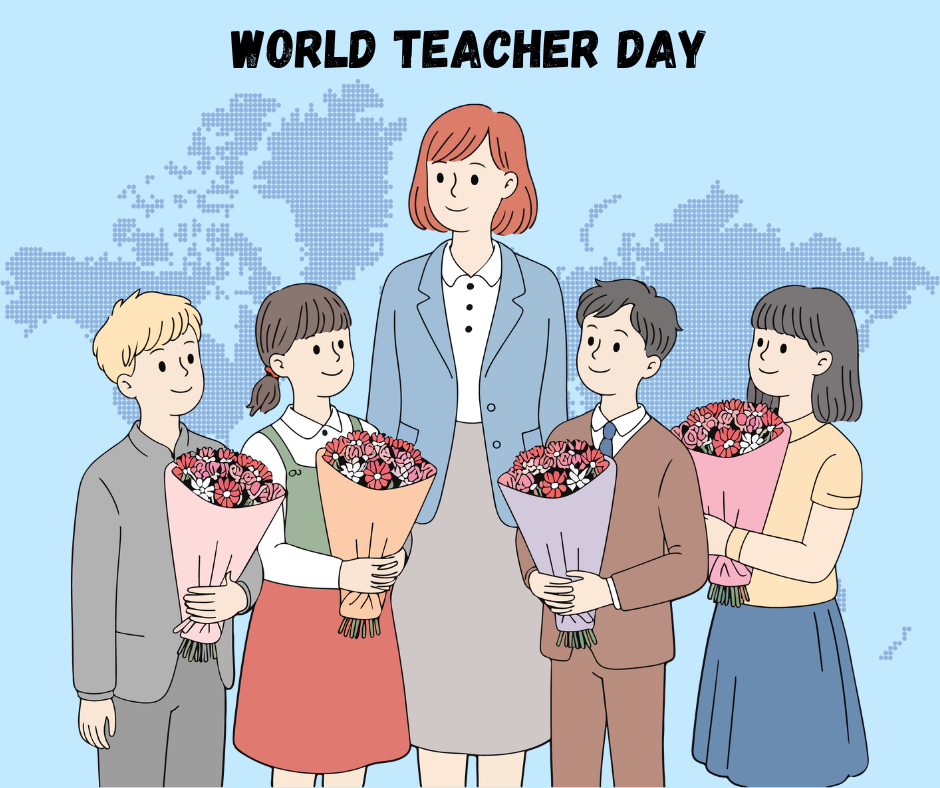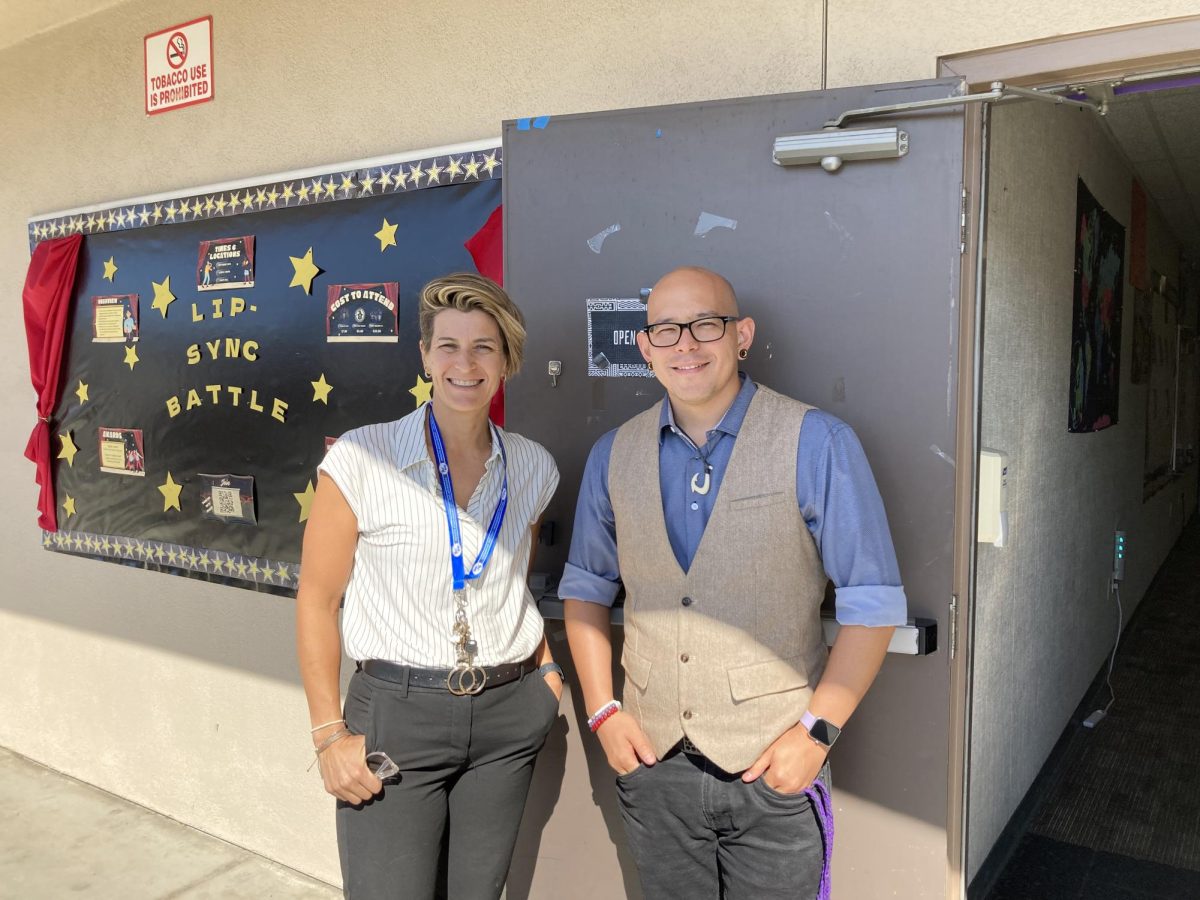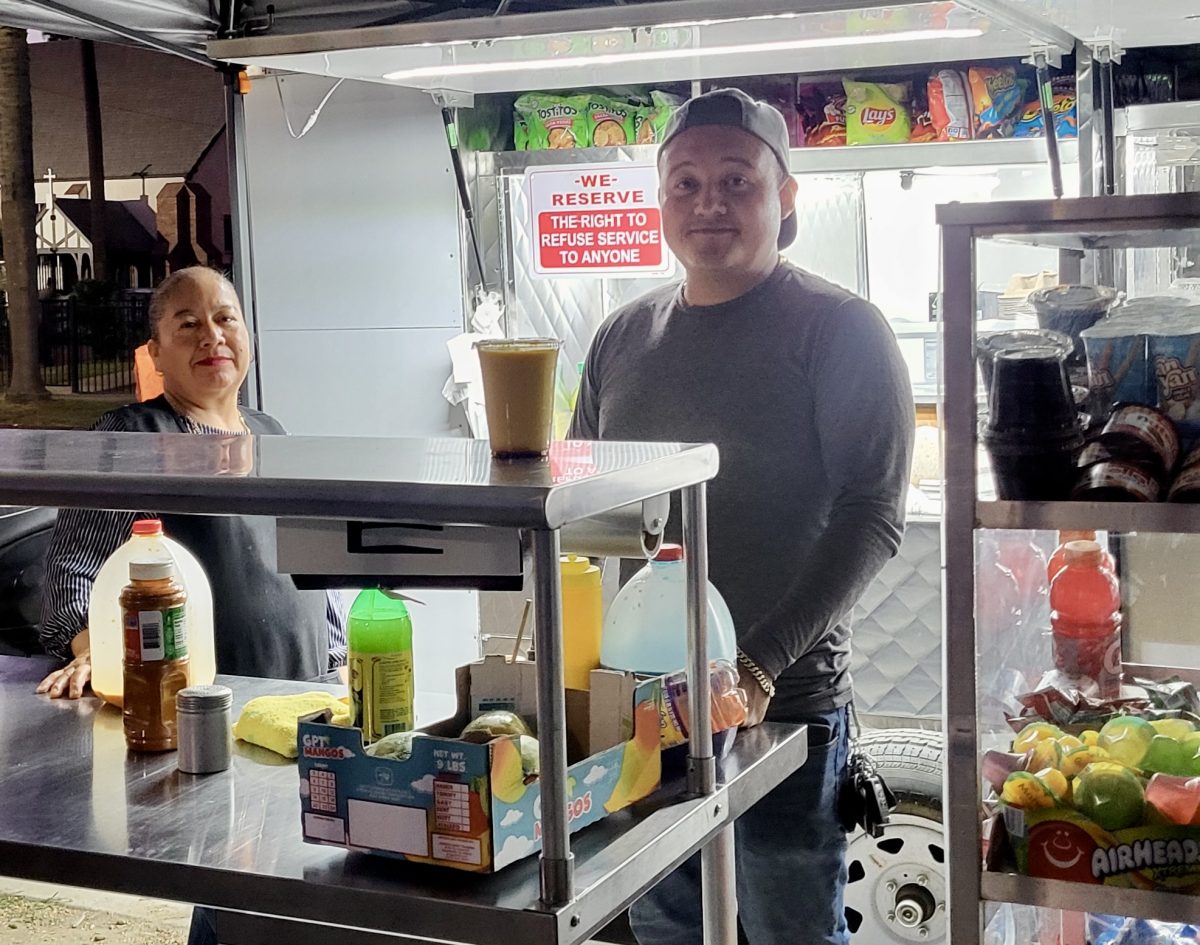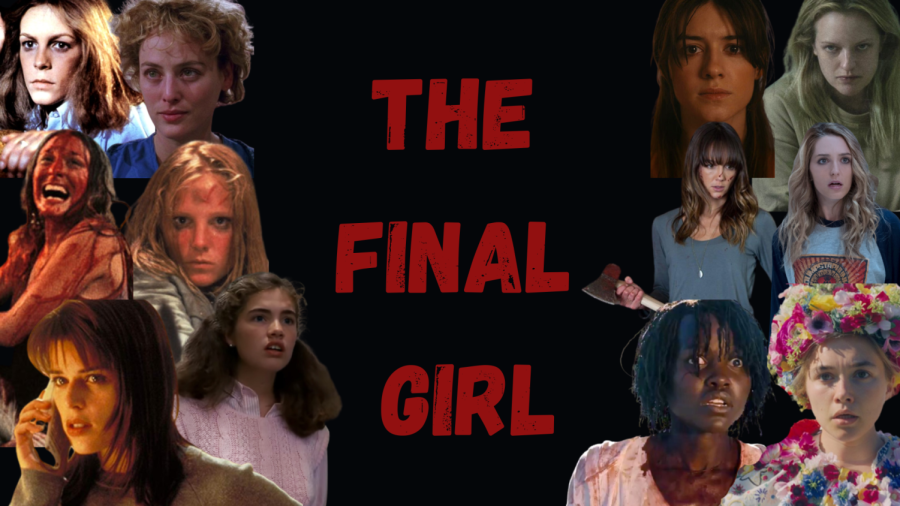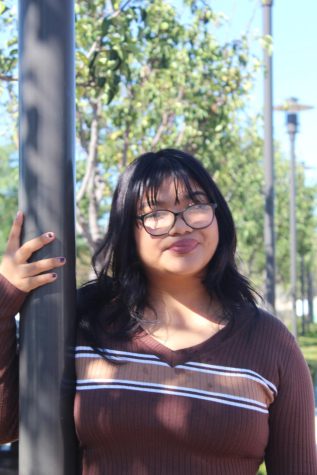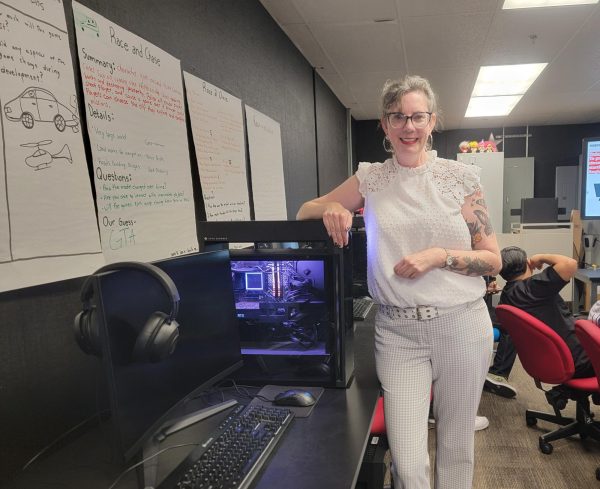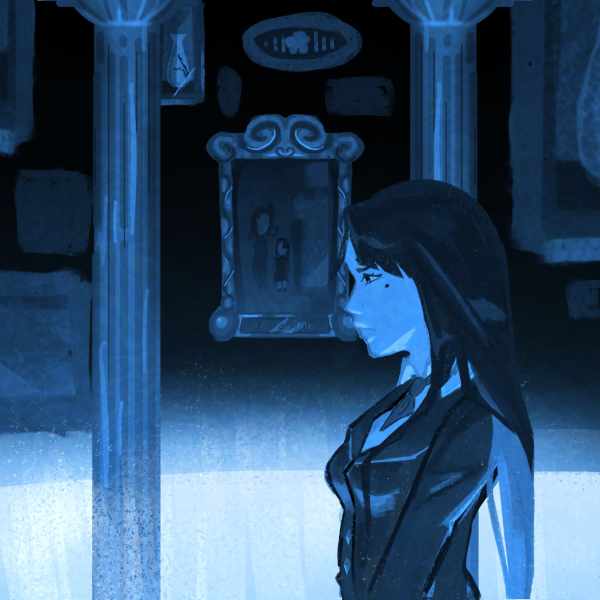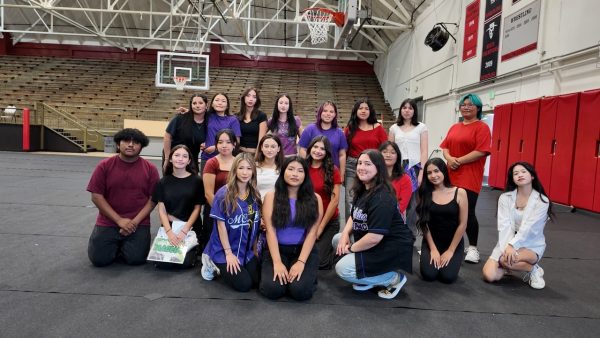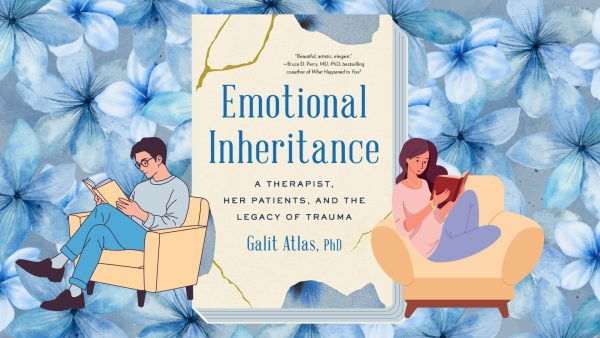Misogyny is the real terror in horror films
Xochilt Chamu (made with Canva)
The final girl trope has been around for decades. However, recent film makers are starting to change harmful stereotypes.
In an ominous cabin in the woods, footsteps approaching, the masked man unveils the curtain to see a woman stab him in the neck and run away. This time, she saved herself with her own wit. The evolution of women in horror movies has shifted immensely and is finally on track to depicting women in a more humane way. Over the past several decades, women have been killed off in gruesome ways in popular series such as “Friday the 13th”, “Halloween”, and “Nightmare on Elm Street.” The term “final girl” was coined by Carol J. Clover in 1987 and describes a phenomenon throughout horror movies where one girl is the sole survivor and has an ultimate showdown with the killer. One of the earliest examples of a modern-day final girl is Laurie Strode from Halloween. Although final girls have been seen as a form of women empowerment, it is difficult to separate them from their strands of misogyny.
On the surface, the idea of a strong female protagonist who outsmarts and escapes the antagonist all on her own seems like an inspiring empowering story. However, there are a few traits in every final girl that point to an unhealthy form of women empowerment. These films seem to have decided what is a pure, respectable, and smart woman. The most compelling trait is that every final girl is a virgin. Although the girls and other teens around them engage in sexual acts, she refrains even if she has a boyfriend. She is also socially awkward which leads to her not partaking in any parties where there can be drugs or alcohol. This leads her to be clear-headed and ready to fight. These traits point to an undercover harm being done to this seemingly innocent trope.
Issues with the portrayal of final girls in horror films is only part of the harmful portrayal. There have been several tropes that discriminate against women.
Senior Carol Perez shared that she notices these tropes and the malicious intent behind them.
“I’ve noticed how a lot of horror movies have couples being killed during sex or women being murdered in more gruesome ways than men. I definitely see how they are doing this on purpose to make it seem as though women are weaker,” said Perez.
Senior Zachary Elson provided his male point of view on this issue.
“I think in older horror movies it was way worse than now. I’m glad things are changing but you do see an obvious difference in how women are constantly stereotyped as dumb damsels in distress and how men have sex, do drugs, and drink alcohol yet aren’t tortured the way women are. I get that some people like a lot of gore which is why there are very gruesome murders, but it can be done without putting down women,” said Elson.
Unfortunately, not many men like Elson see the harm these negative tropes do to women. Director Alfred Hitchcock, arguably one of the most renowned directors who directed classics such as Psycho, has said he likes to torture women: “Torture the women! The trouble today is that we don’t torture women enough.”
In the same interview, he provides more of his misogynistic view.
“I like women, especially beautiful ones. If they have a good face and figure, I would much prefer to watch them being murdered than an ugly girl or a man,” stated Hitchcock.
With directors such as Hitchcock, it is clear to see how these tropes have become essential in all horror films. The problem started with misogynistic film writers and directors who saw women being killed as a great way to capitalize on their hatred for women. True to his word, Hitchcock was the first director to have a woman being gruesomely murdered on screen in his 1960 “Psycho.”
However, in more recent years, more progressive horror films have been made such as “Fresh”, “Us”, and “Midsommar” where women are being portrayed in more humane ways. Women are no longer held to the purity standard. Also, in many of these films, women are seen as independent and able to take control of their own sexuality. There are still final girls and there are still movies where women are being stereotyped but we are moving in the right direction.
Women’s studies professor Mindy Tauberg provided her insight on why women have had such negative limelight in horror films.
“There are deniers who say these tropes are not harmful but they are. Women are portrayed this way because our society has always put women at the bottom. It is how society keeps women down. Final girls have recessive traits. Only praising women who are virgin, tomboyish, and cunning shames women who are expressive of their sexuality, okay with their femininity, and lack masculinity,” Tauberg said.
At its core, horror films are enjoyable because of the fear factor. Many fail to realize that there have been harmful tropes implemented for decades that hurt women. Many women such as myself enjoy horror films, but it is apparent that most women would not survive the high standard male film directors have laid out for us.

